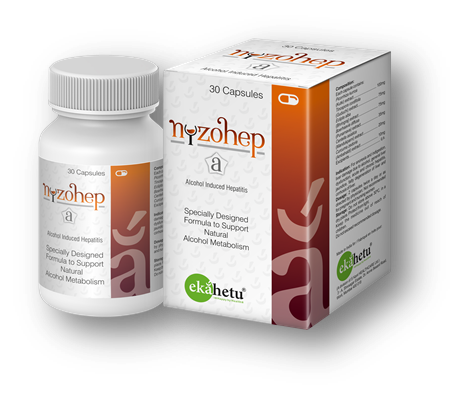Picorrhiza kurroaP. kurroa is one of the most important herbs of Ayurveda, which forms an ingredient of many Indian herbal preparations used for the treatment of liver disorders. The alcoholic extract of P. kurroa has been shown to demonstrate significant hepato-protective effect, which appeared to be due to a mixture of two iridoid glycosides (picroside 1 and kutkoside) known as picroliv (kutkin). It has been found more active than a known hepato-protective drug silymarin.
Centella asiaticaC. asiatica, known in the United States as Gotu kola, is widely used as a traditional herbal medicine in Chinese or Indian Pennywort. The efficacy of C. asiatica is comprehensive and is used as an anti-inflammatory agent, for memory improvement, for its antitumor activity and for treatment of gastric ulcers. C. asiatica significantly decreased inflammatory mediators, including interleukin (IL)-1β, IL-2, IL-6, IL-10, IL-12, tumor necrosis factor-α, interferon-γ and granulocyte/macrophage colony-stimulating factor. These findings suggest that C. had hepatoprotective effects through increasing the levels of antioxidant enzymes and reducing the levels of inflammatory mediators in rats with DMN-induced liver injury.
Eclipta albaThe hepatoprotective activity of extract of E. alba whole plants was established rats given ethanol for 21 days. Ethanol administration led to hepatic damage as manifested by histopathological changes, increase in thiobarbituric acid-reactive substances (TBARS), decrease in reduced glutathione (GSH), superoxide dismutase (SOD), and catalase (CAT), and increase in glutathione peroxidase (GPx) in liver. Histopathological changes indicated that, in alcohol-treated animals, liver showed hepatocytic necrosis and inflammation in the centrilobular region with portal triaditis. These toxic effects were reversed with co-administration of E. alba extract with ethanol.
Curcuma zedoariaC. zedoaria, with multiple ingredients, has been identified as having anti-inflammatory, anti-oxidative stress and anticancer properties. C. zedoaria shows active antioxidant enzymes like catalase, guaiacol peroxidase, glutathione peroxidase and superoxide dismutase and has great importance in therapeutic agent in preventing or slowing down the progressive ageing and age associated oxidative stress related degenerative diseases.
Tinospora cordifoliaT. cordifolia water extract (TCE) intervention effectively reversed the urinary excretion of vitamins, altered the excretion of metabolic intermediates of vitamins and restored normal vitamin metabolism. TCE intervention normalized vitamin metabolism by decreasing oxidative stress through antioxidant compounds present in it. Further, magnoflorine and columbin, ingredients of T. cordifolia trigger the liver regeneration through dopamine receptors and PPARα activation. TCE also increased glutathione synthesis and lipoamide levels, which reduced inflammation and helped in liver regeneration that retained vitamins. Overall, TCE ameliorates the effect of alcohol on vitamin metabolism in alcoholic men due to its capability to fight oxidative stress, regenerating liver, increasing intestinal absorption and modulation of lipid metabolism. Therefore, it may be used as a stand-alone or as an adjuvant with other therapies to treat alcohol-induced disorders.
Boerhaavia diffusaB. diffusa has long been used as a popular hepatoprotective herbal remedy. The extracts of of this plant showed hepatoprotection against CCl4, country made liquor, thioacetamide and acetaminophen-induced hepatotoxicity in rats. The hepatoprotective action was evident from the reduction in the increased levels of serum glutamate oxaloacetate transaminase (GOT), glutamate pyruvate transaminase (GPT) and alkaline phosphatase (ALP) in the treated rats.

